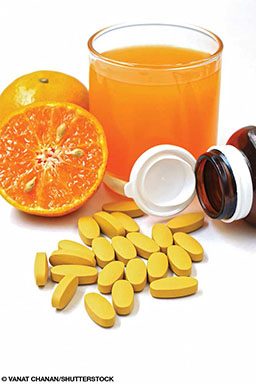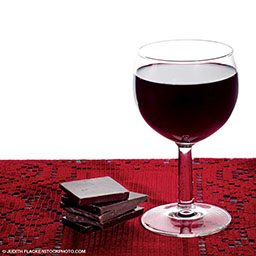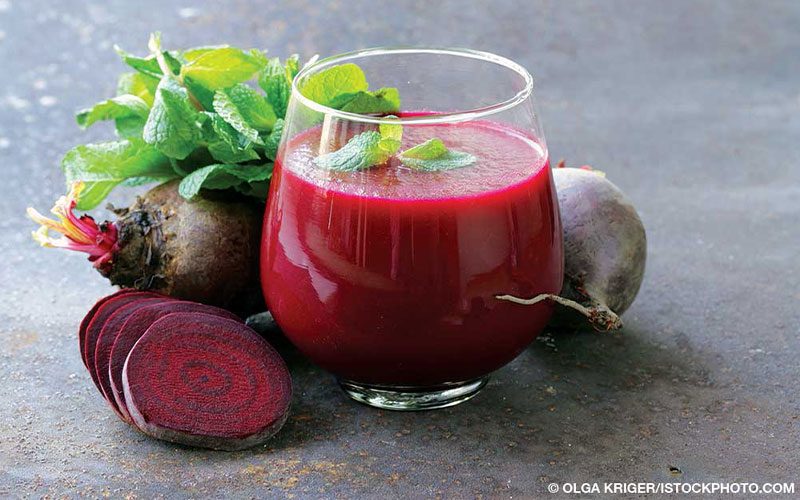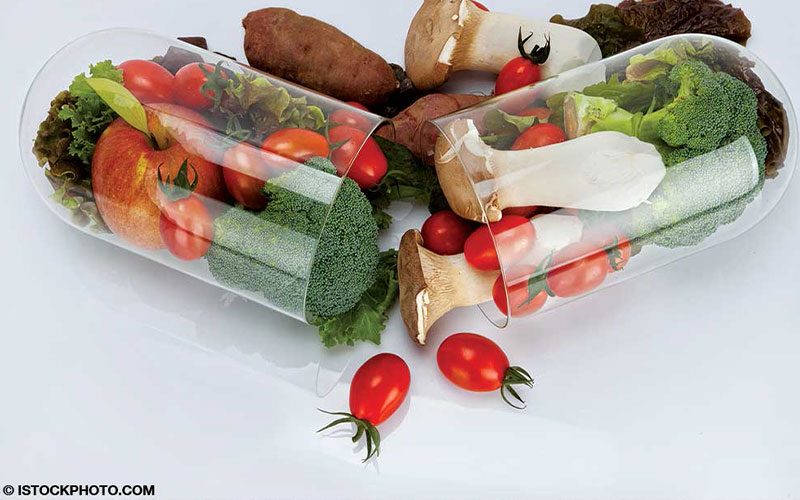Dietary supplements are popular among health- and fitness-conscious people, including recreational divers. Divers often ask about the possible benefits and adverse effects of supplements, used for either general wellness or protection from certain diving injuries. Dietary supplements are clearly helpful to people with a chronic deficit of specific nutrients such as vitamin C (scurvy) or vitamin D (rickets), but effects of supplements in healthy people who eat a balanced diet are less obvious. The large number of supplements available today far exceeds our cumulative scientific capacity to study them all, and so use of supplements grows beyond evidence of their benefits.
Oxidative Damage
Antioxidants are molecules found in cells throughout the body where they help control the free radicals that result from oxidative metabolism. Free radicals are reactive oxygen species (ROS): chemically reactive oxygen-containing molecules that may damage cells and tissues. Most ROS are successfully contained by antioxidants. Some oxidative damage to cells occurs all the time, but most is repaired. Sustained damage, however, may cause genetic changes, various diseases and faster aging.
Breathing hyperoxic gas mixes — those containing more than 21 percent oxygen — for prolonged periods causes oxidative damage in divers. This can affect the eyes (causing myopia), the lungs (causing difficulty breathing) and/or the central nervous system (causing various symptoms, including convulsions). After decades of research we have not managed to prolong the time of symptom-free diving with hyperoxic breathing gases; instead we have learned there are limits on oxygen exposure that divers must obey.
In addition to hyperoxic breathing gas, factors such as immersion, cold, hypoxia and exertion may increase oxidative stress. Accumulation of low-level oxidative damage over time may damage DNA and possibly reduce longevity.
One manifestation of oxygen damage is loss of arteries’ self-regulatory capacity, also known as endothelial dysfunction. The endothelium, the inner layer of the arteries in contact with the blood, releases nitric oxide (NO), which relaxes the smooth muscles in the arterial walls to increase their diameter and change their tone. These mechanisms increase blood flow and/or reduce blood pressure.
Flow-Mediated Dilation
A noninvasive test called flow-mediated dilatation (FMD) can evaluate endothelial function by measuring the increase in diameter of an artery after five minutes of occluded circulation. Normally the diameter of an artery increases when circulation is reestablished, but not so with endothelial dysfunction. Several factors, including exercise and eating various foods, can elicit transitory endothelial dysfunction. It is suspected that repeated endothelial injury may contribute to atherosclerosis and acute heart conditions.
Using FMD, researchers found endothelial dysfunction in divers during open-water diving and in hyperbaric chambers. Studies showed that FMD reduction was more pronounced after nitrox dives but practically unchanged after successive dives and air dives. Variability of response was large, however, and there is no obvious link between FMD findings and cardiovascular disease in divers. Diminished endothelial function is a reality of aging, and diving has not been proven to exacerbate it.
Antioxidants
Antioxidants include vitamins such as vitamin A and vitamin C as well as minerals such as selenium, plant products such as flavonoids and animal products such as melatonin and omega-3 fatty acids. Antioxidants are used in attempts to control oxidative stress and prevent related diseases. The big three are vitamin E, vitamin C and glutathione. Numerous other small molecules — including polyphenols, carotenoids, bilirubin and uric acid — function as antioxidants. These are contained in foods and drinks including meat, citrus, chocolate, tea and wine.

In addition to supporting many bodily functions, vitamin E (tocopherol) is also an antioxidant, readily reacting with and inactivating ROS. Used vitamin E is recycled with the help of vitamin C. Natural sources of vitamin E are abundant, and normal nutrition provides enough to meet physiological needs. Larger doses of vitamin E have been used in efforts to treat various diseases such as hypertension, heart disease, cancer and more, but studies have not found any unequivocal proof of benefits. High doses of vitamin E can lead to hypervitaminosis E with possible vitamin K deficiency and increased risk of bleeding. Vitamin E was one of the first supplements used to try to prevent acute oxygen toxicity in humans, but it was unsuccessful.
Vitamin C enhances wound healing. Animal studies have shown that vitamin C can prevent vasoconstriction of coronary arteries caused by hyperoxia. In human studies, vitamin C blocked hyperoxic vasoconstriction and maintained forearm bloodflow. Researchers studied possible protective effects of vitamin C and vitamin E in healthy divers. Divers who received a single dose of 2,000 mg of vitamin C and 400 IU of vitamin E two hours prior to diving had normal endothelial function, and those who received a placebo exhibited endothelial dysfunction. In another study, divers who received 1,000 mg of vitamin C and 400 IU of vitamin E daily for four weeks showed attenuated postdive decrease in FMD. In the same studies, vitamins prevented changes in other measurements of cardiovascular function that seem to occur regularly in diving.
Despite a small number of subjects, these findings prompted discussion among divers about the use of vitamin C to protect them from possible adverse health effects of diving. Evidence-based justification is not yet available. It is not known what transitory endothelial dysfunction means for long-term health or if vitamin C can provide divers with any measurable health benefits. Regular intake of vitamin C is necessary for health maintenance, but the recommended dose is about 100 mg per day, which can be obtained from one orange or a serving of green vegetables. The dose for treatment of scurvy is 400 to 1,000 mg per day for one week, and the maximum recommended dose is 2,000 mg. There is no evidence that higher doses of vitamin C improve health.
Chocolate

Cocoa contains polyphenols, flavonoid compounds with antioxidant effects, blood-thinning properties and possibly other beneficial effects. The mechanisms involved in these effects include reduction of oxidative stress and increased production of endothelial NO, which supports normal endothelium-dependent vasodilation. This reportedly both lowers blood pressure and reduces risk of heart disease. The majority of studies claiming benefits of chocolate are small-scale studies sponsored or even conducted by chocolate manufacturers.
Benefits of chocolate have been tested in both breath-hold and scuba divers. The scuba dive study was conducted in 91°F water at 108 feet (33 msw) for 20 minutes with no decompression stop. Twenty-one divers ate 30g of dark chocolate (85 percent cocoa) 90 minutes before the dive, while 21 divers in the control group did not have chocolate. The breath-hold study had 10 divers in the chocolate group and 10 in the control group. Both studies found that dark chocolate reduced endothelial dysfunction. Further studies conducted by the same authors found that eating chocolate had no effect on the amount of postdive venous gas bubbles.
Wine
In vitro studies of resveratrol, a compound found in wine, showed antioxidant and other effects that may provide protection against aging, various diseases and death. Further animal studies appeared to confirm the beneficial effects.
Among the benefits were effects on skeletal and cardiac muscle functions similar to the effects of endurance exercise training. It was also claimed that resveratrol improves perfusion of the brain and provides neuroprotection, both of which may be helpful in reducing the risk of decompression sickness (DCS).
Because resveratrol is suspected to prevent endothelial cell dysfunction and platelet aggregation, some scientists assumed it may help prevent DCS. Recent resveratrol studies claimed several additional health benefits that could be appealing to divers, but the amount of resveratrol used in these studies would require drinking 50 to 3,000 liters of wine per day. In studies of whole wine, benefits could not be determined in light of the confounding effects of alcohol consumption.
Beet Juice
Beets are a great source of nitrates, which the body can change into NO. Some studies have found that NO can promote improvement in FMD, lowered blood pressure, decreased oxygen needs for the same level of exercise and enhanced exercise performance. Mechanisms for such enhancements at the cellular and muscular tissue levels, however, were not found. Other studies contradict these findings and claim no effect of nitrate supplementation on exercise performance or other physiological functions.

Researchers studied the use of NO supplements in divers with the rationale that NO may be involved in bubble formation and the endothelial damage caused by bubbles. In one study, nitroglycerin (an NO donor) was given intravenously to animals 30 minutes before decompression from a three-hour, 130-foot (40-m) dive. The amount of venous gas bubbles after decompression was 10 times less in experimental animals than in controls. Researchers also tested nitroglycerin in open-water scuba divers to 100 feet (30 m) for 30 minutes and in hyperbaric chamber dives to 60 feet (18 m) for 80 minutes. The same divers did each dive twice. Thirty minutes before the second dive in the same conditions, divers received nitroglycerine by oral spray. The postdive amount of venous gas bubbles detected in divers was smaller when they received nitroglycerine before the dive. These findings seemed promising at the time, but the evidence was not sufficient to consider recommendation of nitroglycerine to divers — the potential benefit was demonstrated in experiments involving extreme exposures not common in recreational diving.
Since that study, no other research has reproduced these results or moved further toward a possible practical application. Nitroglycerin is a powerful drug that should not be used without a prescription. It can cause side effects when taken alone or in interaction with other drugs or supplements and thus should not be taken for diving.
Supplements with L-arginine (another NO donor) may help to lower blood pressure, and people who take it should be aware of possible interactions with any medications they are using. Beet juice, on the other hand, may be added to your diet without much cause for concern. Just remember that neither of these products has been proven to offer specific protective effects for divers.
To Supplement or Not to Supplement
Consuming dietary supplements and certain foods may change the availability of substances such as NO that participate in basic physiological processes. It may even cause measurable but temporary changes in some functions such as FMD. In experimental settings it may affect the amount of venous gas bubbles present after dives. But these effects are not so pronounced as to suggest, for example, that an antioxidant will decrease the risk of DCS in real-life diving or that without
these supplements diving would lead to long-term health problems.

The U.S. Preventive Services Task Force, which regularly reviews evidence and provides recommendations, found that vitamin C, vitamin E and some other minerals and supplements studied provide no benefit to healthy subjects with regard to heart disease, cancer and mortality.1 Many other supplements on the market make various health claims with little or no supporting evidence. A healthy and balanced diet will provide all the micronutrients you need. If you like chocolate, beware of excess sugar. If you drink wine, enjoy it in moderation, and do not drink before diving. Remember, your safety underwater depends on your dive behaviors and good judgment, not the foods you eat.
Oxidative Stress
The energy necessary to sustain life is produced within cells by oxidative metabolism. This process breaks down complex molecules from micronutrients, freeing their chemical energy and storing it in ready-to-use packages called adenosine triphosphate (ATP). This can occur through several pathways, but the only sustainable process includes oxygen as a receiver of electrons freed from the energy-rich chemical bounds. In that process, various forms of very reactive oxygen-containing molecules arise. Called reactive oxygen species (ROS), or oxygen radicals, these molecules play important roles in health and disease.
The amount of ROS increases with physical activity and intensity of metabolism. Exposure to hypoxia, hyperoxia and ionizing radiation may also increase production of ROS. White blood cells in contact with bacteria release huge amounts of ROS, which kills bacteria. Surplus ROS can be neutralized by various protective substances called antioxidants. Oxidative stress is a condition in which the amount of generated ROS exceeds existing antioxidant capacities. Mild oxygen stress can improve bodily functions (promoting muscle growth, for example), but excessive stress can cause various diseases and speed up aging. Efforts to prevent diseases and extend life include strategies to reduce oxidative stress and increase the availability of antioxidants in the body.
Reference
- Fortmann SP, Burda BU, Senger CA, Lin J, Beil T, O’Connor E, Whitlock EP. Vitamin, Mineral, and Multivitamin Supplements for the Primary Prevention of Cardiovascular Disease and Cancer: A Systematic Evidence Review for the U.S. Preventive Services Task Force. Evidence Report No. 108. AHRQ Publication No. 14-05199-EF-1. Rockville, Md.: Agency for Healthcare Research and Quality; 2013.
© Alert Diver — Q2 Spring 2016